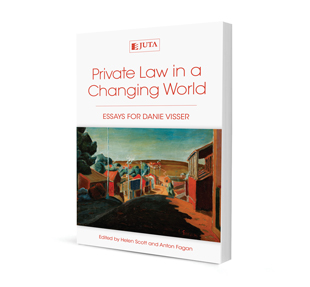Long live the law of unjustified enrichment – A response to Jansen

Long live the law of unjustified enrichment – A response to Jansen
Authors J du Plessis
ISSN: 1996-2088
Affiliations: Distinguished Professor of Law, Stellenbosch University
Source: Acta Juridica, 2019, p. 371 – 394
Abstract
The law of unjustified enrichment is a prominent feature of the legal landscape of many civil-law systems and of German law in particular. However, resorting strongly to historical arguments relating to the development of German law, Nils Jansen has argued that the strands of material united under its law of unjustified enrichment are too disparate to warrant its recognition as a distinct field of law. The purpose of this essay is to explore the basis for and implications of Jansen’s argument. This is done mainly by adopting the perspective of South African law, which shares many features of the civil-law background of German law. The exploration commences with a brief examination of Jansen’s argument, followed by an inquiry into what it entails to locate rules in various fields of law. Thereafter, the implications of his argument for South African law are considered. It is concluded that the view that certain rules should be (exclusively) located in some fields of law because they serve policies or values that ‘belong’ to those fields is problematic. Furthermore, it is not apparent why Jansen sets such a high standard for uniformity in the application of the general principles of the law of unjustified enrichment, compared to other areas of law. And finally, it is doubtful what practical benefits could arise from his proposed alternative approaches, for example, relocating part of its subject matter to a ‘law of performances’.